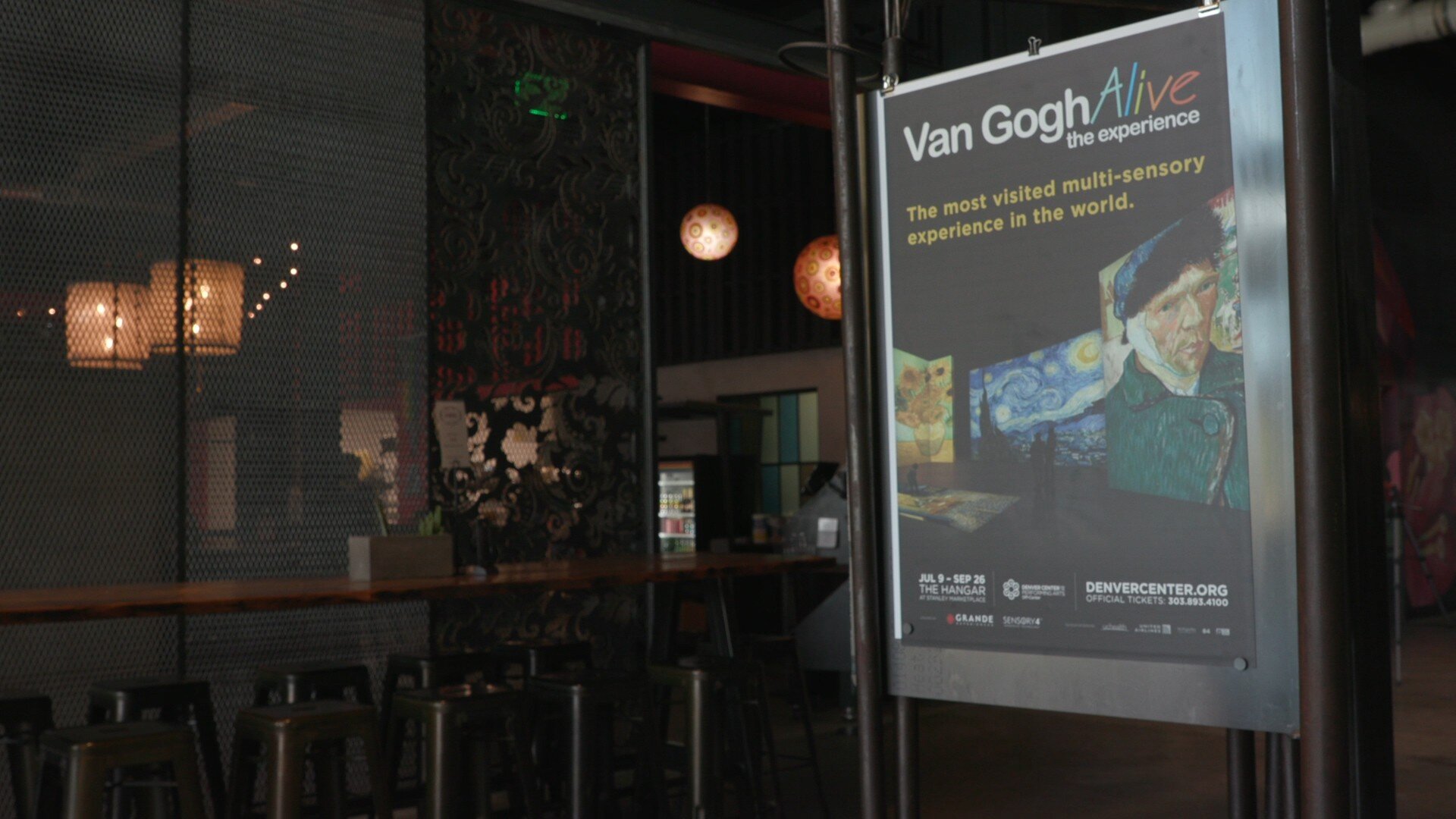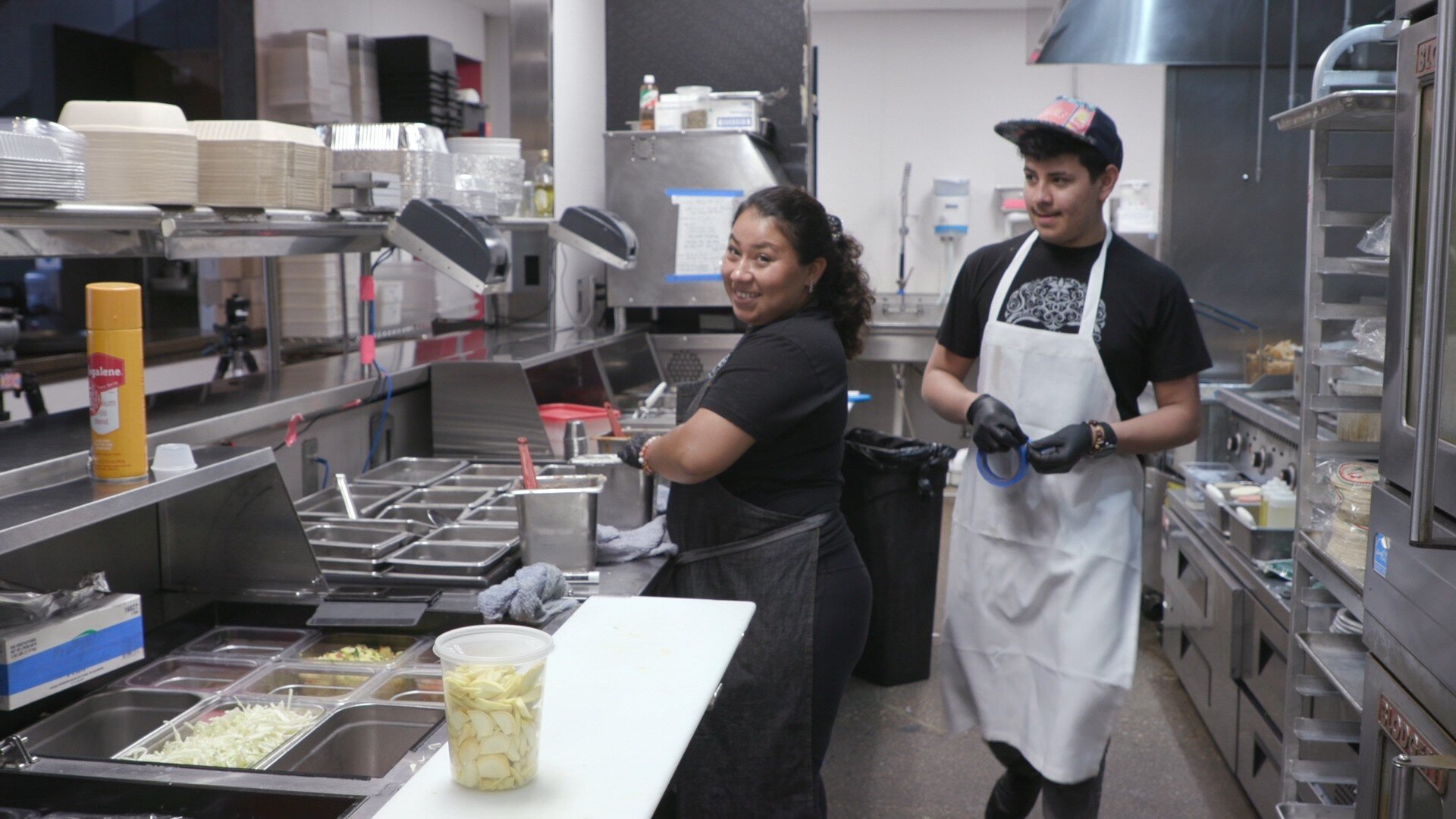'Our only crisis is staffing': Restaurants ride next pandemic wave

AURORA, Colo. — “We’re still here. We’re still thriving.”
Rayme Rossello is passionate about the hospitality business. She’s owned restaurants for over two decades.
Her restaurant Comida, which started as a food truck in 2010, has grown through a couple of locations — from Longmont to The Source in Denver — to the current restaurant location at Stanley Marketplace in Aurora.
“Comida means food in Spanish. Comida as a restaurant is a Mexican street food-meets-Southern comfort food sort of spot. It’s all the things I love from growing up in the South to all of the things I love from Mexico,” said Rossello, describing her favorite menu items like the bacon and jalapeño griddled taco and the mushroom tostada.
The restaurant has about 120 seats inside and has been a source of pride and livelihood for more than 30 employees.
The COVID-19 pandemic changed that.
Related Stories
“We hunkered down as a staff. I’d say there were 32 people who [were] furloughed that week,” Rossello said, adding that three weeks later, “We decided to figure it out because it felt like that would be something good for all of us.”
Rossello’s ‘let’s figure it out’ attitude led the Comida team through months of pivots: from focusing on to-go orders (which grew 75%), to creating cook-at-home family dinners, to reopening with safer dining options.
They weathered the first wave of the pandemic with help from the federal Payroll Protection Program and every grant or loan Rossello could apply for. Those relief programs kept paychecks and food flowing. Rossello added that the community came out to support however they could.
“People really were responsive," she explained. "I know...that they were supporting us because they wanted to see us get to the other side.”
Pandemic's “other side” has new challenges – staffing shortages & retention
Since the beginning of the new year, the Comida team has found creative ways to stay open seven days a week. They've also been able to hire back staff who were willing to return.
“There were probably eight people who chose not to come back. Everybody else came back. We didn’t have a large staff to begin with, so losing those eight made quite an impact,” Russello said.
That impact is being felt at Comida and so many restaurants in Colorado and across the nation. In May, as more restaurants were opening to full capacity, Colorado Restaurant Association President and CEO Sonia Riggs told Rocky Mountain PBS that hiring was the "biggest challenge" for restaurants. There are a multitude of reasons, not least of which is the fact that after the height of the pandemic, which disproportionately effected workers in the food industry, restaurant workers are being more selective about where they work.
But people still want to eat. As vaccination rates in Colorado have increased and restrictions have eased, Rossello says Comida has seen a massive increase in diners returning.
The Van Gogh Alive immersive art exhibit opened July 9 next door to Comida. Rossello expects the exhibit will bring about 2,000 additional visitors to Stanley Marketplace every day. She also anticipates visitors stopping for a bite or drink afterwards at Comida or another location in the marketplace.

Short nearly 10 staff members, the Comida team has been working seven days a week. It’s starting to take a toll, and hiring attempts aren’t working.
“We have been posting on different job boards and platforms and social media for the past six months,” Rossello said. “People will say that they're going to show up for an in-person interview. And then they don't show up.”
[From NPR: Business Should Be Booming — If Only There Were Enough Workers For The Job]
She’s also had people not show up for training.
Rossello has decided to pivot one more time. Starting July 12, Comida will close on Mondays and Sundays.
“So making the decision was 100 percent purely so that we don't lose more great people,” she said.
“We are frustrated, you know. My chef and general manager – I want them to have lives outside of here. They are no good to anybody, especially to themselves, if they're working seven days a week,” she said.
Salaries & benefits increasing – a reckoning for industry
“We definitely paid people more than the minimum wage, but this [pandemic] has created an opportunity for me to say, ‘What...could I live on?'" said Rossello.
In response to Rossello's reflection on industry needs, Comida has increased manager salaries and is creating an opportunity for more time off, including two consecutive days for all staff. There is also a new way to increase salaries for the kitchen team.
“It says so on the bottom of our menu that two percent comes right off the top and goes to our kitchen employees. So, if they work 40 hours, they get their 40 hours at whatever that amount has been broken down to by how many employees are working that week,” she said.
Rossello’s plan for retaining staff is critical to Comida’s continued success. She also believes a satisfied team will lead to even better customer experience.
“For a guest...to walk in and see all of us frazzled—It's no good. That's not what hospitality is about. This is a place where they get to come and not be frazzled and let go and have a drink and have good food, where we get to take care of them,” she said.
Next: rethinking costs and consumer expectations
With so many in the hospitality industry increasing salaries and offering bonuses, the next conversation is about the true cost of these added expenses.
Restaurants are already known to operate on very tight budgets.
“Tacos are not $4 anymore, and they can't be if we're going to pay people a living wage," Russello said. "They can't be if we're going to buy food that is organic, and they can't be if we're spending all the time that we spend to make the food that we're making."
“I look forward to there being a shift in consciousness around people's perceptions and what they think it's supposed to [cost] because it has to change,” she added.

Immediate goal is to survive and thrive in the best possible way
Rossello is anticipating busy days on the five days they will stay open – and she’s so thankful. Consistent sales and teamwork will get this business through.
“We're showing up every day. We're doing what we can, but you have to be proactive. You've got to change the narrative somehow and take control. And that's what we're trying to do by closing for 2 days. We're trying to take control of what's happening for us, so that we can be the very best that we can be when we are here,” she said, adding that she can’t wait to be back to full days – and supporting the community vibe at Stanley Marketplace.
Job resources are available here.
Jennifer Castor is the Executive Producer of Multimedia Content at RMPBS. You can email her at jennifercastor@rmpbs.org.